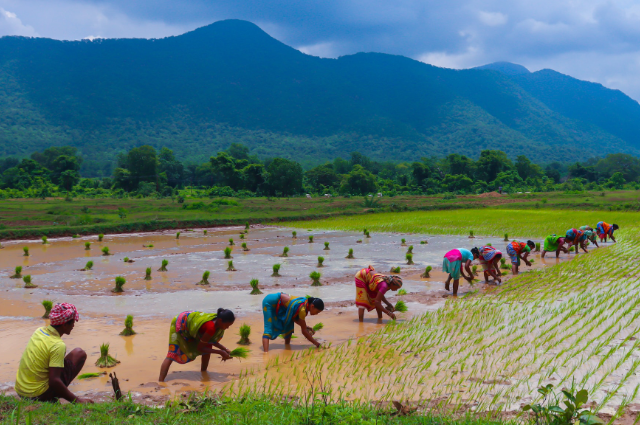
Photo by Jagamohan Senapati on Unsplash
I. Introduction
India stands as a testament to a cultural tapestry woven with myriad traditions, philosophies, and practices that have not only endured but also fueled contemporary innovations. This article delves into the profound link between India’s rich cultural heritage and the burgeoning landscape of modern innovation.
II. Historical Context of Innovation in India
India’s historical legacy is punctuated with groundbreaking innovations that trace back to ancient civilizations. From the invention of zero in mathematics to early medical practices, these ancient innovations laid the foundation for the country’s innovative prowess today. The influence of these traditional practices continues to reverberate through modern-day innovations, demonstrating a unique continuity over centuries.
III. Cultural Foundations of Innovation
1. Philosophy and Spirituality:
India’s philosophical doctrines, embodied in ancient texts like Ayurveda and yoga, provide not just a way of life but also serve as catalysts for innovative thinking. The interconnectedness of mind, body, and spirit within these philosophies inspires novel approaches and problem-solving methodologies.
2. Arts and Literature:
Indian art, literature, and storytelling traditions have long been recognized for their ability to stimulate creative thought processes. The richness of narratives, symbolism, and diverse artistic expressions nurtures an environment ripe for innovation.
3. Diversity and Inclusivity:
The multifaceted nature of India’s cultural practices fosters an inclusive society where diverse perspectives converge. This inclusivity, embracing various beliefs, traditions, and practices, acts as a breeding ground for innovative ideas shaped by a multitude of influences.
4. Traditional Knowledge Systems:
Despite the march of time, India’s traditional knowledge systems persist, serving as reservoirs of wisdom that continuously inspire contemporary innovations. Whether in agriculture, architecture, or sustainable practices, these age-old systems offer valuable insights into addressing modern challenges.
IV. Impact of Cultural Fusion and Globalization
The intersection of India’s cultural diversity with globalization has been a breeding ground for innovation. Take, for instance, the evolution of Indian cuisine. The fusion of traditional flavors with global culinary trends has led to the rise of restaurants serving modern Indian dishes worldwide, catering to diverse palates while preserving the essence of Indian culinary artistry.
In the technology sector, Indian startups have carved a niche in global markets, showcasing an amalgamation of local ingenuity and global technological trends. Companies like Flipkart and Zomato epitomize this synergy, leveraging indigenous ideas to revolutionize e-commerce and food delivery.
V. Contemporary Innovations Rooted in Indian Culture
- Technology and Start-up Culture: The startup ecosystem in India, fueled by a blend of indigenous talent and global connectivity, has birthed innovations across various fields, from fintech to agri-tech.
- Medicine and Wellness: Ancient Indian practices like yoga and Ayurveda have gained global recognition, inspiring innovations in wellness apps, personalized healthcare, and herbal medicine research.
- Sustainable Practices: India’s cultural values, deeply rooted in sustainability, have catalyzed innovations in eco-friendly materials, renewable energy, and community-driven conservation efforts.
VI. Challenges and Opportunities
While the fusion of cultures presents immense opportunities, challenges persist. Issues like preserving authenticity in the face of rapid globalization and protecting intellectual property rights require careful consideration. However, these challenges also offer opportunities to leverage India’s cultural diversity for novel solutions.
VII. Conclusion
The link between India’s cultural richness and modern innovation is undeniable. It’s imperative to recognize the symbiotic relationship between the two and harness this synergy for sustained innovative endeavors. Preserving and utilizing cultural diversity isn’t merely an ode to tradition; it’s a pathway to an innovative future where heritage and modernity harmoniously coexist.
